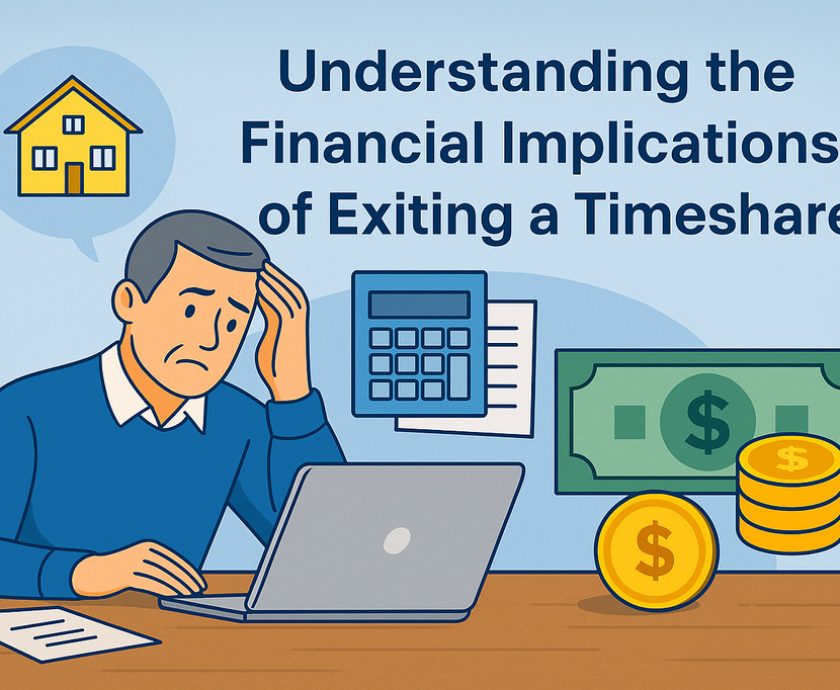Timeshare Laws Need To Change

Timeshare Laws Need To Change



The Problem With Perpetual Contracts
One of the most contentious issues surrounding timeshares is the perpetual nature of many timeshare agreements. These contracts are often structured to last “in perpetuity”, meaning they do not expire—even upon the death of the original owner. As a result, heirs can unknowingly inherit the financial obligations of a timeshare, including maintenance fees, special assessments, and property taxes, even if they don’t use or want the property.
This perpetual clause traps families in a cycle of ongoing liability. Unlike traditional real estate, a timeshare typically does not appreciate in value or offer any equity benefits. Instead, it locks owners into long-term financial commitments with little to no exit strategy. Unfortunately, current laws often uphold the enforceability of these contracts—even when the terms heavily favor the developer or management company.
Assistance in the Student Program
Congue eu consequat ac felis donec et odio. Facilisis gravida neque convallis a. Eget est lorem ipsum dolor sit. Ullamcorper eget nulla facilisi etiam dignissim diam. Erat pellentesque adipiscing commodo elit. Tortor at risus viverra adipiscing at in tellus integer feugiat. Pellentesque habitant morbi tristique senectus et netus et malesuada fames. Sit amet consectetur adipiscing elit. Eleifend donec pretium vulputate sapien. Blandit massa enim nec dui nunc mattis enim ut tellus.

Turpis cursus in hac habitasse platea. Lacus vel facilisis volutpat est velit. Sit amet risus nullam eget felis eget nunc. Dolor sit amet consectetur adipiscing elit pellentesque habitant. Id interdum velit laoreet id donec ultrices tincidunt arcu non. Pretium vulputate sapien nec sagittis. Molestie ac feugiat sed lectus vestibulum mattis.
There are no secrets to success. It is the result of preparation, hard work, and learning failure. – OLIVER SANDERO
Et pharetra pharetra massa massa ultricies mi quis hendrerit dolor. Bibendum arcu vitae elementum curabitur. Sociis natoque penatibus et magnis. Facilisi etiam dignissim diam quis enim lobortis scelerisque. Hac habitasse platea dictumst vestibulum rhoncus est. Sociis natoque penatibus et magnis dis parturient montes nascetur ridiculus. In aliquam sem fringilla ut morbi tincidunt. Aenean pharetra magna ac placerat. Et pharetra pharetra massa massa ultricies mi quis.
Limited Resale Options and No True Ownership
Another flaw in the current legal framework is the lack of a viable resale market. Most timeshare contracts restrict the ability of owners to sell, rent, or transfer their interest. Even when resale is allowed, the value of a timeshare plummets dramatically after purchase. In fact, many owners can’t even give their timeshare away without paying transfer fees or clearing backlogged maintenance debts.
Because of these limitations, some owners fall behind on payments, leading to credit damage or aggressive collections. Yet, consumer protection laws haven’t evolved to offer meaningful help. Timeshare owners are often treated more like lessees or licensees than actual property owners—despite being financially on the hook like traditional real estate holders.
High-Pressure Sales and Lack of Transparency
Many timeshare purchases happen under high-pressure sales conditions. Consumers are lured into presentations with promises of free vacations, gift cards, or other incentives. Once there, they may be subjected to hours-long pitches, often filled with emotional appeals, incomplete information, and urgency tactics.
What’s worse, buyers often walk away without a clear understanding of the long-term costs or legal obligations they’ve agreed to. Cooling-off periods do exist in some states, allowing for contract cancellation within a few days—but these vary widely in length and enforcement. Uniform federal regulation could ensure a standard of transparency and fairness that currently does not exist.
A Call for Reform
- Contract Duration Limits: Perpetual contracts should be banned or restricted. Consumers should have the option to renew or exit their timeshare interest after a reasonable term, such as 10 or 15 years.
- Standardized Exit Rights: Laws should require timeshare companies to offer a clear, accessible, and affordable exit program, especially for aging owners or families in financial distress.
- Transparent Pricing and Terms: Full disclosure of all costs—including future maintenance fees, taxes, and special assessments—should be legally mandated before signing.
- Federal Oversight: The Federal Trade Commission (FTC) or another regulatory body should establish national standards for timeshare sales practices, contract terms, and dispute resolution.
- Inheritance Protections: Heirs should not be automatically bound by timeshare liabilities. Legal mechanisms should be in place to decline inheritance without penalty or delay.
Conclusion
The timeshare model may have once served vacationers well, but its outdated legal structure no longer meets the needs of modern consumers. Millions are trapped in rigid, expensive contracts with no fair way out. By modernizing timeshare laws, we can bring accountability to the industry, protect vulnerable consumers, and ensure that vacation ownership returns to being a source of joy—not a lifelong burden.











